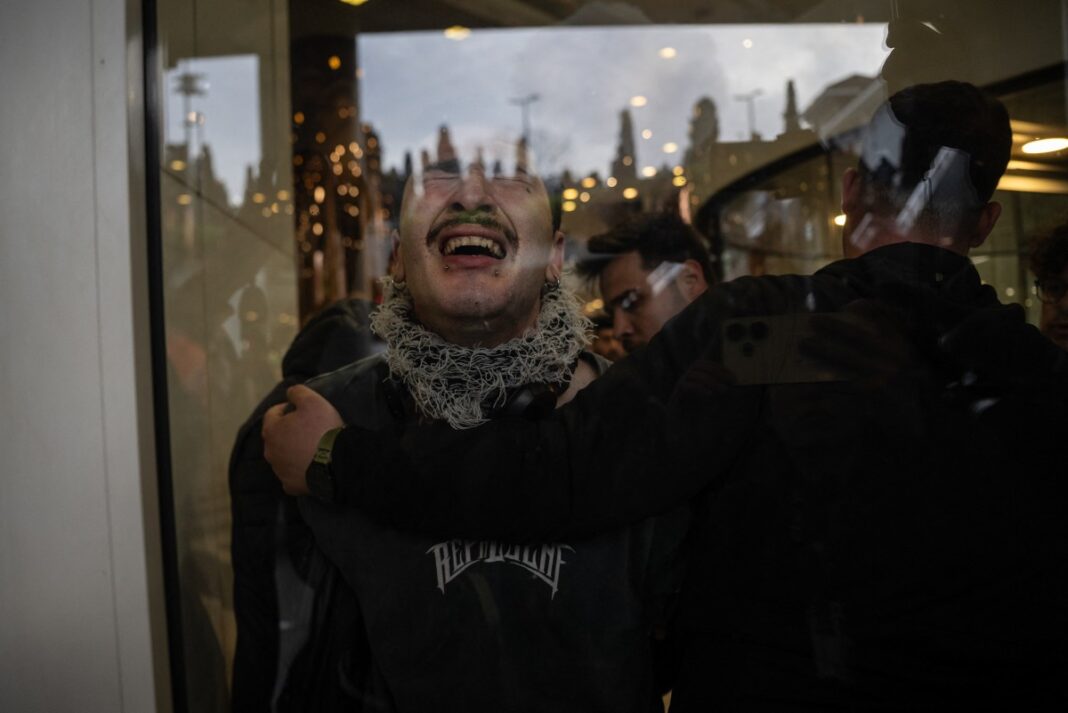Turkey’s justice minister has denied allegations of mistreatment after hundreds were detained during nationwide protests over the arrest of İstanbul Mayor Ekrem İmamoğlu, drawing fresh criticism of the government’s rights record, the Kısa Dalga news website reported on Monday.
The minister’s remarks came after widespread criticism over the detention and alleged mistreatment of hundreds of protestors who took to the streets following the March 19 detention of İstanbul Mayor Ekrem İmamoğlu. The mayor’s subsequent arrest — on charges tied to a corruption investigation — triggered large-scale demonstrations in İstanbul and across the country, with thousands rallying against what opposition leaders have called a politically motivated crackdown.
In remarks reported by Kısa Dalga, Tunç responded to allegations that detainees — including students, journalists and municipal officials — had been subjected to abuse, poor conditions and unlawful strip-searches. “There is no such thing as strip-searches in our country,” he claimed, dismissing the reports as part of a “black propaganda” campaign.
His comments were met with a backlash. Human rights lawyer Hüseyin Demirtaş responded on X, saying, “Strip-searches are a widespread and systematic assault on dignity,” accusing Tunç of denying a well-documented practice. Civil society groups and former detainees have long reported the use of degrading searches — a practice the European Court of Human Rights ruled to be in violation of human rights in similar contexts.
The minister also defended the legal basis for the detentions, which he said were ordered by public prosecutors and courts after “violence or violations” during protests. He insisted that the Turkish judiciary is impartial and that all detainees are under the state’s protection.
However, his reassurances contrast sharply with Turkey’s record. Just months ago, the Turkish government sent two senior officials — both accused of involvement in torture and unlawful rendition — to represent the country at a United Nations Committee Against Torture (CAT) session in Geneva. One of them, former ambassador Kıvılcım Kılıç, was implicated in the illegal abduction of six Turkish nationals from Kosovo in 2018. Another, police chief Rüştü Yılmaz, faces serious allegations of overseeing torture in southeastern Turkey.
At that session UN rapporteurs accused Turkey of using strip-searches systematically, misrepresenting European court rulings and failing to investigate abuse claims. More than 40 CSOs submitted documentation detailing enforced disappearances, extrajudicial killings and prolonged arbitrary detention.
Human rights groups, including the Parliamentary Assembly of the Council of Europe (PACE), have repeatedly sounded the alarm over Turkey’s deteriorating human rights record. Hundreds of torture complaints have been filed in recent years, while victims and their lawyers say investigations are rarely conducted and perpetrators are almost never prosecuted.
Despite these warnings the Turkish government continues to assert that its judicial system meets international standards. Tunç’s latest comments echo past government responses that seek to minimize or outright deny documented abuses, reinforcing concerns about impunity.
In the ongoing crackdown on protests over İmamoğlu’s arrest, more than 2,000 people were detained, and nearly 300 of them have been jailed so far.



